Find the Best House Demolition Contractors in USA
Demolish Your House with Confidence
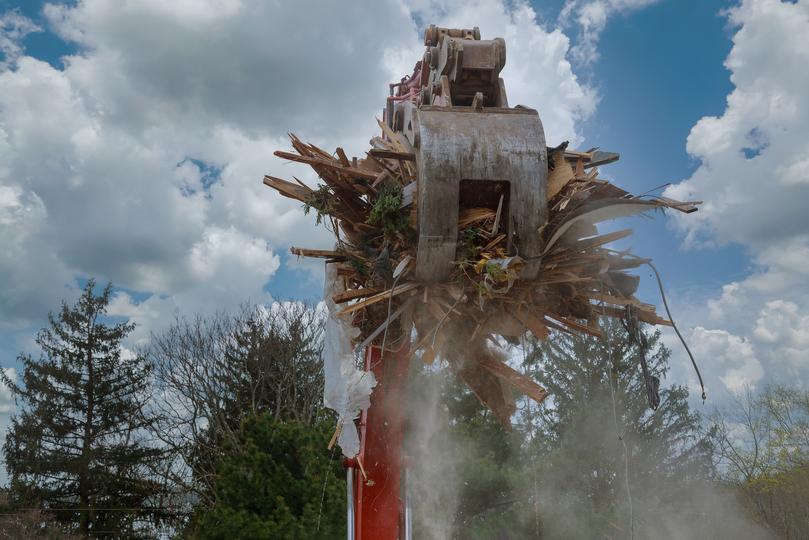
Need Other Demolition or Construction Services?
Demolition Contractors Near Me
Find licensed and insured demolition contractors near you. Get free quotes for residential and commercial demolition projects.
Hire Excavating Contractors
Need excavation work done? We can connect you with reputable excavation contractors in your area. Get quotes for your project today.
Commercial Wrecking Services
We specialize in safe and efficient commercial demolition services. Our experienced team handles projects of all sizes.
Pool Removal
Need to get rid of your old pool? We offer safe and affordable pool removal services, including inground and above ground pools.
Concrete Removal Services
We offer expert concrete demolition and removal services for sidewalks, driveways, patios, and other concrete structures.
Asbestos Abatement Services
We provide safe and certified asbestos removal services to protect your health and the environment. Our team follows all regulations for proper disposal.
Building Contractors
Find reliable and experienced construction companies in your area for new home builds, renovations, and commercial projects.
Finding the Right House Demolition Contractor Is Easy
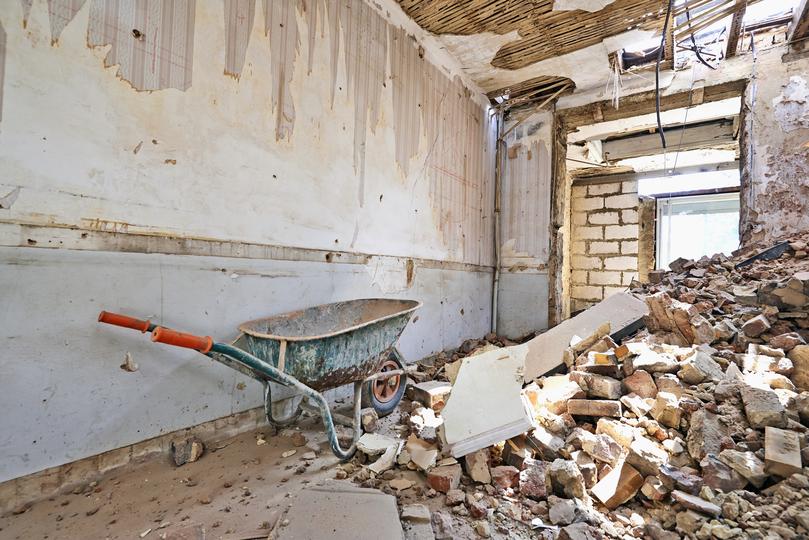
- Tell Us About Your House Demolition Project
- Describe your house, its size, location, and any specific demolition or site clearing requests.
- We Connect You With Local Contractors
- We match you with experienced house demolition contractors who service your area and have the expertise for residential projects.
- Compare Quotes & Choose The Best Fit
- Review quotes, compare services, and select the contractor that aligns with your project needs and budget.
- Start Your House Demolition!
- Begin your house demolition project confidently, knowing you have a reputable and reliable contractor on board.
Why Choose DemolitionMatch.com for Your House Demolition?
Why Choose DemolitionMatch for Your Demolition Needs?

- Experienced and Licensed Contractors
- We partner with experienced and licensed house demolition contractors who have a proven track record of safely and efficiently demolishing residential properties.
- Streamlined Process
- Our platform makes it easy to find and hire the right contractor. Submit your project details, receive multiple quotes, and compare services all in one place.
- Safety and Compliance
- Safety is our top priority. Our contractors are insured and adhere to strict safety protocols, ensuring your demolition project is completed responsibly and legally.
- Competitive Quotes
- Receive competitive quotes from multiple house demolition contractors, empowering you to compare pricing and find the best value for your project.
- Minimize Disruption
- Our contractors work diligently to minimize disruptions to your neighborhood and complete the demolition efficiently.
- Free and Easy to Use
- DemolitionMatch.com is a free service for homeowners. There are no hidden fees or obligations.
Demolition Services for Businesses
Commercial Demolition
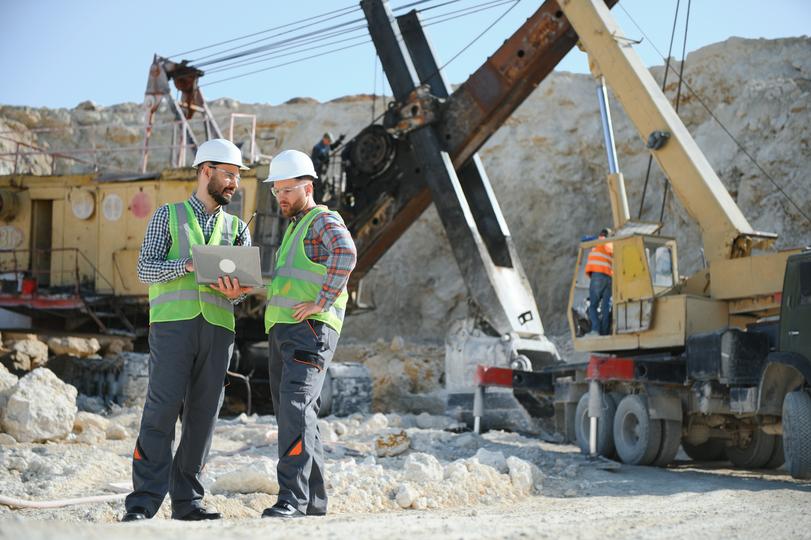
Trenching and Excavation
Need excavation work done? We can connect you with reputable excavation contractors in your area. Get quotes for your project today.
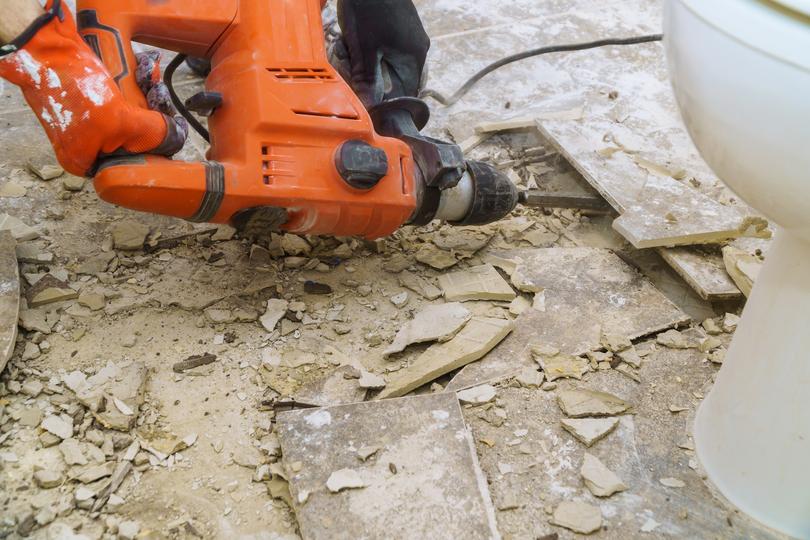
Factory Demolition Experts
We specialize in safe and efficient commercial demolition services. Our experienced team handles projects of all sizes.
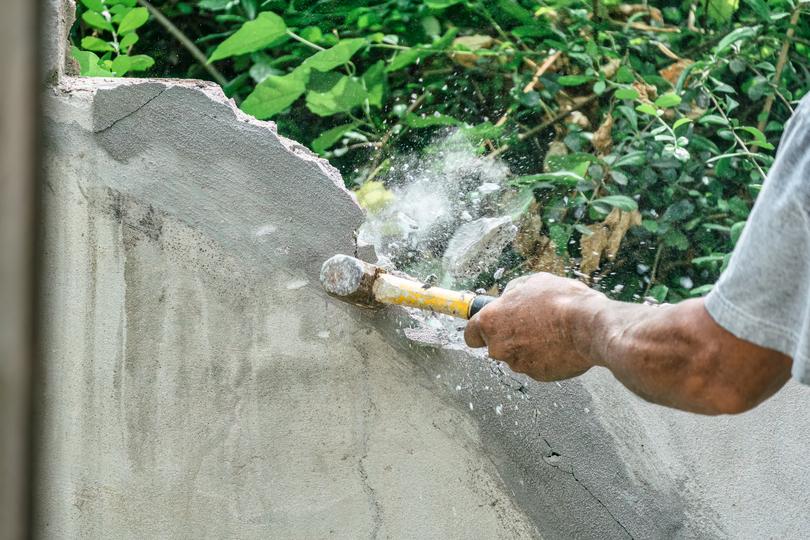
Concrete Breaking
We offer expert concrete demolition and removal services for sidewalks, driveways, patios, and other concrete structures.

Asbestos Abatement Services
We provide safe and certified asbestos removal services to protect your health and the environment. Our team follows all regulations for proper disposal.
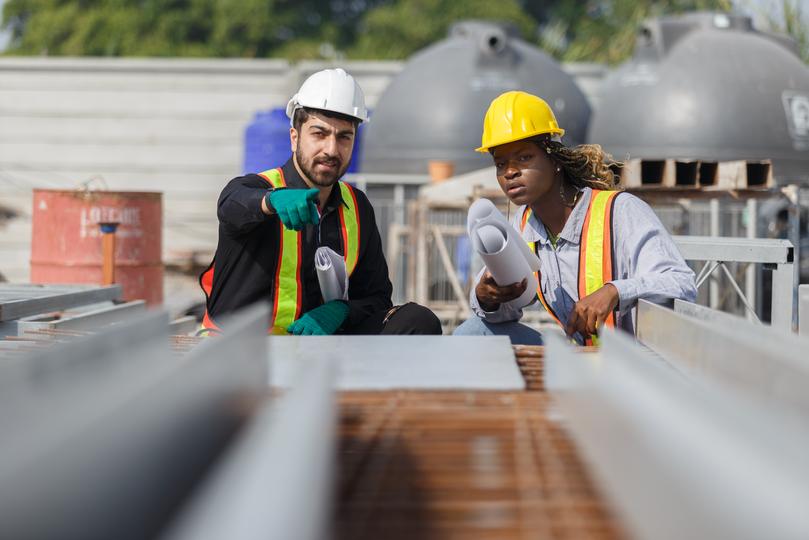
Construction Companies
Find reliable and experienced construction companies in your area for new home builds, renovations, and commercial projects.
Demolition Services for Homeowners
Residential House Demolition
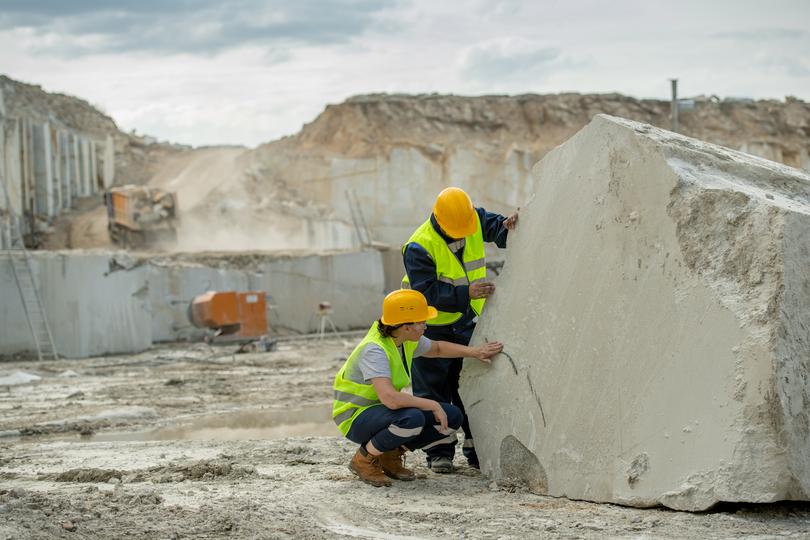
Structure Demolition
Find licensed and insured demolition contractors near you. Get free quotes for residential and commercial demolition projects.

Excavation Services
Need excavation work done? We can connect you with reputable excavation contractors in your area. Get quotes for your project today.
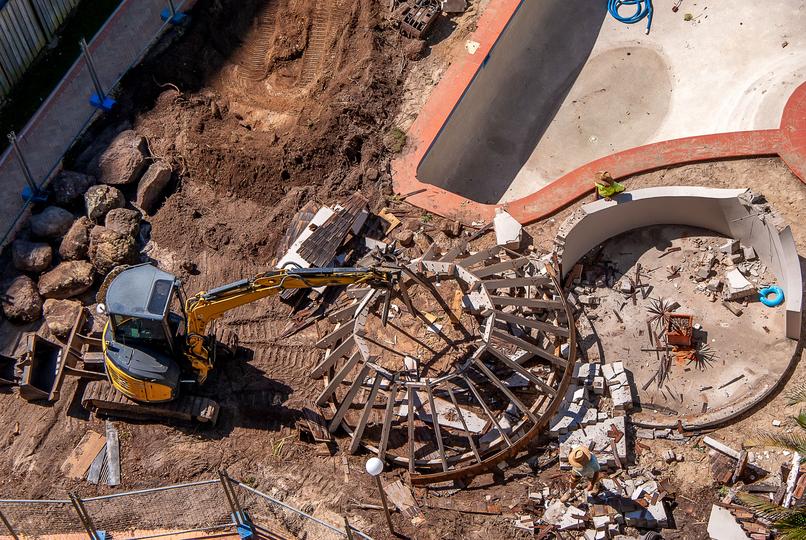
Pool Removal
Need to get rid of your old pool? We offer safe and affordable pool removal services, including inground and above ground pools.

Tear Down Your Home
Need an old house torn down? We provide safe and efficient house demolition services, preparing your lot for new construction.

Concrete Removal Services
We offer expert concrete demolition and removal services for sidewalks, driveways, patios, and other concrete structures.

Asbestos Remediation Experts
We provide safe and certified asbestos removal services to protect your health and the environment. Our team follows all regulations for proper disposal.

Building Contractors
Find reliable and experienced construction companies in your area for new home builds, renovations, and commercial projects.
Ready to Demolish Your House?
Find the Best House Demolition Contractors on DemolitionMatch.com!
House Demolition Glossary
Demolition Permit
Asbestos Abatement
Deconstruction
Excavator
Wrecking Ball
Bulldozer
Dumpster
Landfill
Recycling Center
Hazardous Waste
Site Preparation
Debris Removal
Foundation Removal
Grading
Utilities
Frequently Asked Questions About House Demolition
How much does it cost to demolish a house?
- Size of the house:
- Materials used in construction:
- Accessibility of the site:
- Presence of hazardous materials (asbestos, lead paint, etc.):
- Local permit fees and disposal costs.
How long does it take to demolish a house?
What is the process for house demolition?
- Obtaining necessary permits and approvals.
- Disconnecting utilities (water, gas, electricity).
- Performing asbestos abatement if asbestos is present.
- Preparing the site (protecting surrounding structures, trees, etc.).
- Demolishing the house using appropriate methods.
- Removing and disposing of debris.
- Grading and leveling the site.
What are the different methods for house demolition?
- Manual demolition:
- Mechanical demolition (using excavators, wrecking balls, etc.):
- Controlled demolition (e.g., implosion, for larger structures).
Do I need a permit to demolish a house?
How do I choose a house demolition contractor?
- Experience:
- Licensing and insurance:
- Safety record:
- References and client reviews:
- Clear communication and transparent pricing.
What happens to the debris after house demolition?
Can I demolish my house myself?
What preparations are necessary before house demolition?
- Obtaining necessary permits.
- Disconnecting utilities.
- Removing personal belongings and fixtures.
- Addressing hazardous materials (asbestos, etc.).
- Protecting nearby structures and landscaping.
What is the cost of asbestos removal during demolition?
How do I handle hazardous materials during demolition?
What is the role of a structural engineer in house demolition?
What are the environmental considerations for house demolition?
Can I salvage materials from my house before demolition?
What happens to the foundation after demolition?
What utilities need to be disconnected before demolition?
What are the safety precautions for house demolition?
- Site security and access control
- Worker training and use of PPE
- Dust suppression and noise control
- Hazardous material handling procedures
- Emergency response plans
How do I get a demolition permit?
- Contact your local building department or municipal office: Inquire about specific requirements, which can vary based on location, size, and type of structure.
- Complete the application: Provide necessary details about the property, the demolition plan, and the contractor.
- Submit required documents: This might include proof of ownership, site plans, asbestos surveys (if applicable), and the demolition contractor's license and insurance information.
- Pay the permit fee: Fees vary depending on the project scope and local regulations.
- Schedule inspections (if required): Inspections may be necessary before, during, or after the demolition. Your demolition contractor can often assist with the permit application process, streamlining things for you.
What is a demolition bond?
What are the signs of a poorly executed demolition?
- Damage to Adjacent Properties:
- Incomplete Debris Removal:
- Improper Handling and Disposal of Hazardous Materials:
- Lack of Proper Site Restoration:
- Safety Hazards:
How can I recycle demolition materials?
- Concrete:
- Wood:
- Metal (steel, copper, aluminum, etc.):
- Bricks:
- Asphalt shingles (in some cases).
What are the regulations for demolition in USA?
How much does it cost to tear down a small house?
- Size of the house (square footage).
- Materials used in construction (wood, brick, concrete, etc.).
- Accessibility of the site for demolition equipment.
- Presence or absence of hazardous materials (asbestos, lead paint).
- Local disposal costs and permit fees.
Can I sell my house for demolition?
- Property developers:
- Construction companies:
- Individuals looking to rebuild on the lot.
How much does it cost to demolish a house?
- Size of the house:
- Materials used in construction:
- Accessibility of the site:
- Presence of hazardous materials (asbestos, lead paint, etc.):
- Local permit fees and disposal costs.
How long does it take to demolish a house?
What is the process for house demolition?
- Obtaining necessary permits and approvals.
- Disconnecting utilities (water, gas, electricity).
- Performing asbestos abatement if asbestos is present.
- Preparing the site (protecting surrounding structures, trees, etc.).
- Demolishing the house using appropriate methods.
- Removing and disposing of debris.
- Grading and leveling the site.
What are the different methods for house demolition?
- Manual demolition:
- Mechanical demolition (using excavators, wrecking balls, etc.):
- Controlled demolition (e.g., implosion, for larger structures).
Do I need a permit to demolish a house?
How do I choose a house demolition contractor?
- Experience:
- Licensing and insurance:
- Safety record:
- References and client reviews:
- Clear communication and transparent pricing.
What happens to the debris after house demolition?
Can I demolish my house myself?
What preparations are necessary before house demolition?
- Obtaining necessary permits.
- Disconnecting utilities.
- Removing personal belongings and fixtures.
- Addressing hazardous materials (asbestos, etc.).
- Protecting nearby structures and landscaping.
What is the cost of asbestos removal during demolition?
How do I handle hazardous materials during demolition?
What is the role of a structural engineer in house demolition?
What are the environmental considerations for house demolition?
Can I salvage materials from my house before demolition?
What happens to the foundation after demolition?
What utilities need to be disconnected before demolition?
What are the safety precautions for house demolition?
- Site security and access control
- Worker training and use of PPE
- Dust suppression and noise control
- Hazardous material handling procedures
- Emergency response plans
How do I get a demolition permit?
- Contact your local building department or municipal office: Inquire about specific requirements, which can vary based on location, size, and type of structure.
- Complete the application: Provide necessary details about the property, the demolition plan, and the contractor.
- Submit required documents: This might include proof of ownership, site plans, asbestos surveys (if applicable), and the demolition contractor's license and insurance information.
- Pay the permit fee: Fees vary depending on the project scope and local regulations.
- Schedule inspections (if required): Inspections may be necessary before, during, or after the demolition. Your demolition contractor can often assist with the permit application process, streamlining things for you.
What is a demolition bond?
What are the signs of a poorly executed demolition?
- Damage to Adjacent Properties:
- Incomplete Debris Removal:
- Improper Handling and Disposal of Hazardous Materials:
- Lack of Proper Site Restoration:
- Safety Hazards:
How can I recycle demolition materials?
- Concrete:
- Wood:
- Metal (steel, copper, aluminum, etc.):
- Bricks:
- Asphalt shingles (in some cases).
What are the regulations for demolition in USA?
How much does it cost to tear down a small house?
- Size of the house (square footage).
- Materials used in construction (wood, brick, concrete, etc.).
- Accessibility of the site for demolition equipment.
- Presence or absence of hazardous materials (asbestos, lead paint).
- Local disposal costs and permit fees.
Can I sell my house for demolition?
- Property developers:
- Construction companies:
- Individuals looking to rebuild on the lot.